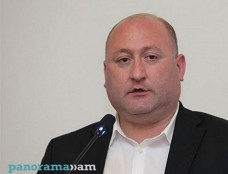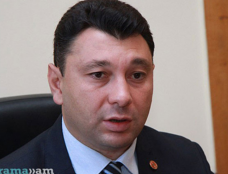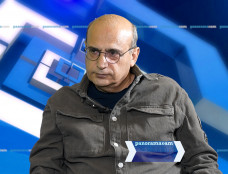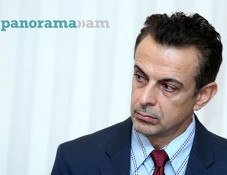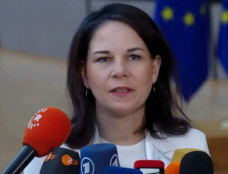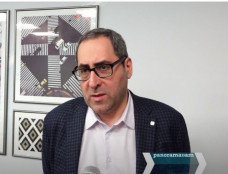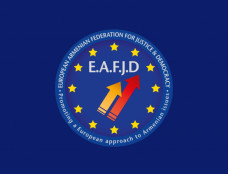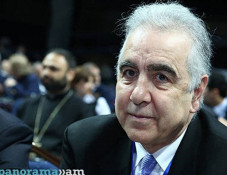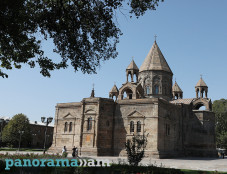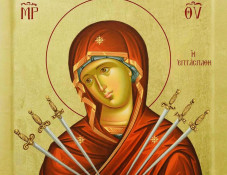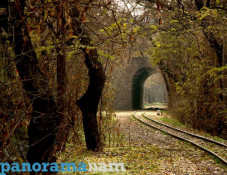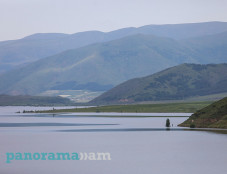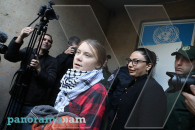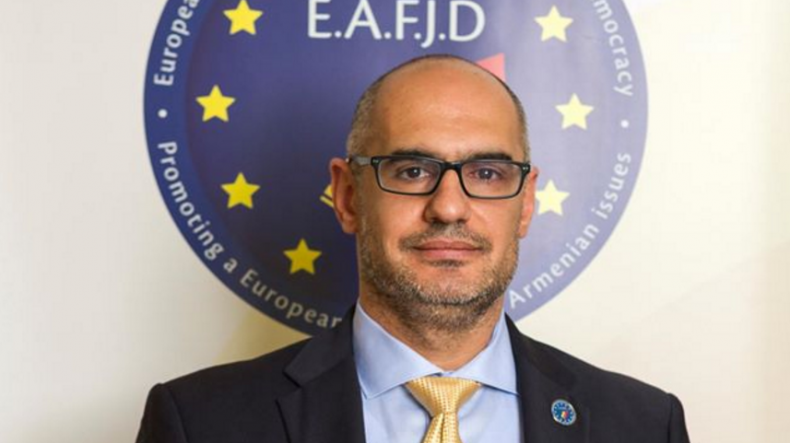
Bedo Demirdjian: Territorial Concessions to Azerbaijan Must be Ruled Out
“Open discussions are now going on in [In Europe] in multiple fora on the recognition of the right to self determination of the Artsakhi Armenians, which is the first step to full recognition”, – said Mr. Bedo Demirdjian – Communications & Public Relations Officer at the European Armenian Federation for Justice and Democracy (EAFJD), Brussels, in an interview with Panorama.am.
Speaking about our long-term goals, Bedo Demirdjian noted that the question of territorial concessions to Azerbaijan must be ruled out, that we must rewrite such a defeatist narrative and instead implement attainable and real policies to make those lands liveable.
Below is the interview with Bedo Demirdjian.
Panorama.am - Recognition of NKR is one of the stated priorities of the European Armenian Federation. What are the main opportunities / achievements and challenges on this road? What needs to be done to accelerate this process?
Bedo Demirdjian- The recognition of Nagorno Karabakh Republic – Artsakh is our main priority these days here in Europe. Main achievements in general can be considered the open discussions going on in multiple fora, recognising the right to self determination of the Artsakhi Armenians, which is the first step to full recognition. Since the April war, we already have had two delegations from Artsakh visit Brussels. In June, the president of Artsakh Mr. Bako Sahakyan led a delegation of eight members, comprised of Nagorno Karabakh National Assemly deputies and the foreign minister. Later the newly elected ombudsman, Mr. Ruben Melikyan visited Brussels, and last week, another parliamentary delegation visited Brussels, led by MFA Mr. Karen Mirzoyan. In all these visits the Artsakh delegations are meeting their colleagues in the European Parliament and the several Belgian Parliaments, presenting the actual facts on the ground in Stepanakert, the capital city, and at the borders with Azerbaijan, making agreements on educational matters and cooperation in Human Right fields, civil society and free movement. Being in a relative peace and war does and shall not exclude the basic, everyday needs of the Karabakhi Armenian.
As important as these delegations to Brussels are, the visits of European deputies and officials are to Nagorno Karabakh – Artsakh. The last delegation visiting Artsakh returned less than a month ago, and a group of journalists from Austria have just returned from their trip and the first coverage has already been published. The important thing is for Europeans to visit Artsakh as well, witness with their own eyes the free will of the Armenian people and the state-building of Nagorno Karabakh in the face of Azerbaijani aggression and war threats. From Safarov to Talish, the modus operandi of the Azerbaijani state and armed forces have not changed – and we need to be prepared for everything, as well as remind our partners and the world with what sort of an adversary we are looking to have peace with. It is obvious that Armenians can't and won't live in the state of Azerbaijan.
I want to stress once again, that the recognition of the independence is a process, it won't happen overnight. We shall keep working in European circles on this.
Panorama.am- Given that the positions of the parties are irreconcilable and that the Madrid Principles include unacceptable concessions on the Armenian side (which would make the possibility of Azerbaijan’s aggression more rather than less likely), what should be our strategy for ensuring the long-term security of the RA and NKR (aside from negotiations)?
Bedo Demirdjian- On the contrary, Azerbaijan is disatisfied with the Madrid principles. Baku tries hard and hard to derail the process, to take the matter in other formats, or even declare publicly via its president, that there is a pressure on Azerbaijan to recognize the independence of Artsakh, and threaten US State Department Secretary John Kerry. In our case, the guarantor of the security in both our republics are first and foremost us, the Armenian people, in Artsakh, Armenia and the Diaspora. In this sense, after the April war, the qualitative and quantitate changes along the borders of Artsakh –Azerbaijan are highly important. We shall have learnt our lesson by now, and not repeat the mistakes of the past.
Currently, Armenia is the guarantor of the Artsakh Republic, as well as the negotiator on its behalf in a set format. First and foremost, Artsakh must be part of the negotiations as soon as possible, and the international community, mainly the OSCE Minsk Group, besides enforcing Azerbaijan to respect the agreements achieved in Vienna between the presidents, shall as well force Azerbaijan to sign a non-aggression pact with Armenia. War is no alternative for a future peaceful solution to the Artsakh-Azerbaijan conflict. I believe the public display of Iskander missiles' systems last September in Armenia made a strong statement in regard to our capabilities in a future flare-up of the conflict. War is not the solution, though. Armenia is committed to the non-use of force, or threat of, which is one of the three main pillars of the negotiations. There are many security guarantees, but before reaching it, Azerbaijan should be brought and remain on the negotiating table.
Panorama.am- Mr. Demirdjian, in one of your interviews you said that the question of territorial concessions to Azerbaijan must be ruled out. Could you please elaborate more on this?
Bedo Demirdjian-Must be ruled out, yes. We shall rewrite the narrative, and stop the defeatist approach that we have put ourselves in. We have won the war enforced upon us by Azerbaijan, and still discussing concessions in imaginary terms. What I have stated is that we need to discuss and implement attainable and real policies to make those lands liveable – to top up what is already being done. It is not the easiest thing to build a country after a devastating war, a country which is blockaded and its one and only ally is in a situation of embargo imposed by Turkey. And to end this question, one of the main pillars of a state is its democratic aspirations, as well. We need to work more to go up the ladder from “partly free” to “free”, as Freedom House puts it.
Panorama.am- During the April war we have largely seen Europe’s inaction in terms of condemning Azerbaijan’s aggression against NKR. Do you think there can ever be a backlash from the EU if Azerbaijan attempts another war, or should we stop expecting anything of that sort?
Bedo Demirdjian- In regard to Europe, we have to accept the fact that it is not the only player in the region, it can't do much, it doesn’t have the army and capacity to intervene militarily, nor it is its mandate to do so, but Europe, and the EU specifically, can play its role – by not succumbing to caviar diplomacy and propaganda, by following its own adopted resolutions and decisions of pledges of Human Rights first in its foreign and energy policies. Europe must remain true to its values and institutions.
We shall not expect a military intervention of any sorts by Europe. What Europe can do is to use its sóft power, and ensure that both sides, mainly Azerbaijan, stick to International law and obligations.
Mr. Bedo Demirdjian is the Communications & Public Relations Officer at the European Armenian Federation for Justice and Democracy (EAFJD) in Brussels.
Interview by Nvard Chalikyan
Newsfeed
Videos





